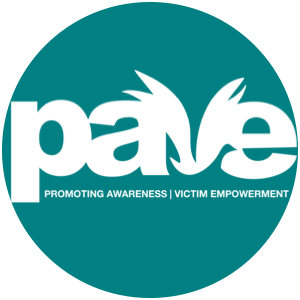Mental Health After Trauma
As part of Sexual Assault Awareness Month, PAVE would like to talk about the importance of understanding and taking care of your mental health after experiencing trauma.
When a traumatic event occurs, it can affect us emotionally and physically, and can occur at various times after the traumatic event. Initial reactions to trauma can include exhaustion, confusion, sadness, anxiety, agitation, dissociation [disconnected from your thoughts, feelings, memories, and surroundings], physical arousal, and blunted affect [difficulty in expressing emotion]. In most cases, people have the tendency to minimize traumatic life events that continue to be distressing well after the event has occurred. We shame ourselves, thinking: “I should be over this by now,” or “it wasn’t that bad.” Family and friends may unconsciously add even more shame and say, “Why can’t you just let it go?” The problem with trauma is more often than not, it simply doesn’t go away on its own and no amount of persuasion can convince ourselves that we should be over it will change that fact that a traumatic event has occurred.
The truth is, we all react to trauma in different ways; therefore, there is no “right” or “wrong” way to feel, think, or respond, so don’t judge your own reactions or those of others. Your responses to trauma are all normal reactions to an abnormal event. Life can take unexpected twists and turns, so when trauma happens, it can be difficult to understand and process what has happened. Recovering from trauma takes time, and everyone heals at their own pace. I have four trauma recovery tips that may help in your journey to healing after trauma.
Tip #1: Get Moving! When a traumatic event occurs, it disrupts your body’s natural equilibrium, freezing you in a state of hyper arousal and fear. Exercise and movement can help repair your nervous system, as well as burn off adrenaline and release endorphins. Releasing endorphins is important because endorphins help fight off situational depression that may develop after a traumatic event.
Tip number 2: Do not isolate. Following a traumatic event, you may feel the need to withdraw from others; however, connecting to others, face to face, will help you heal. Interacting and connecting with others in your daily life serves as a resting period away from any negative memories or thoughts. Also, connecting with others does not always involve talking about the trauma. In fact, for some people, it may actually make things worse. Talking and being with people is for comfort and support, in order to feel engaged and accepted by others.
Tip number 3: Self-regulate your nervous system and be present. As a person who has experienced trauma, I understand how agitated, anxious, and out of control you may feel. But it is important to know that you have the ability within yourself to change your arousal system and calm yourself down. Not only will this help relieve the anxiety associated with trauma but it will also induce a greater sense of control. One out of the many ways to self-regulate is mindful breathing. My favorite breathing technique is taking 6 long breaths in and 4 long breaths out—focusing your attention on each “out” breath which can help you stay grounded and present. When you stay present by keeping your brain busy in the here and now, you help keep yourself from drifting back to the past.
Tip number 4: Take care of your health. Having a healthy body can increase your ability to cope with the stress of trauma. After a traumatic experience, thoughts of fear and anxiety may disturb your sleep patterns but the lack of quality sleep may enhance your trauma symptoms and make it difficult to maintain your emotional balance. Therefore, try to get plenty of sleep. Do not turn to alcohol and drugs, because they can worsen your trauma symptoms as well as increase feelings of depression, anxiety, and isolation.
Coping after a traumatic event and taking care of your mental health can be difficult and confusing, but I want you to know that you do not have to suffer in silence. Please reach out and do not be afraid to ask for help. Having a positive support network is a crucial part of the trauma recovery process. If months have passed and your symptoms aren’t letting up, you may need to seek help from a professional trauma expert.
So remember, you are not alone, you are not to blame, recovery is possible and is highly anticipated!
View Jaimie’s SAAM Video on Mental Health After Trauma here!
Written by PAVE’s Outreach Intern: Jaimie Velasquez
